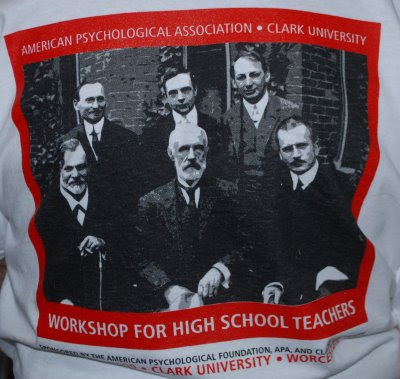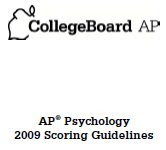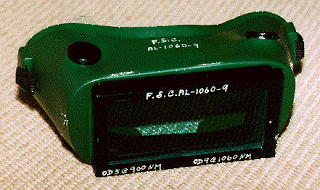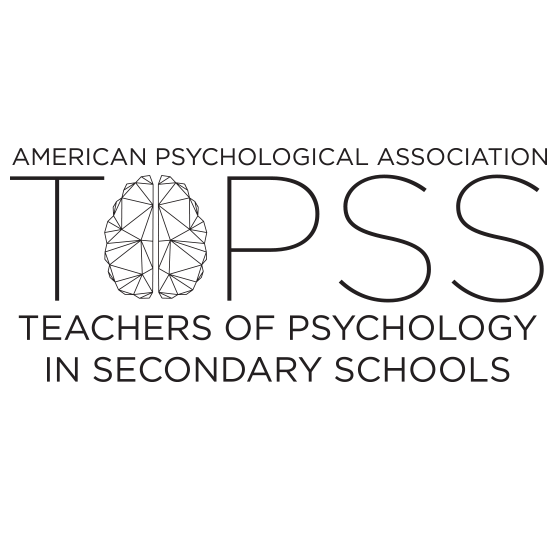
I had a delightful week with about 25 high school psychology teachers from all over the U.S. and Puerto Rico at the
2009 American Psychological Association (APA)/Clark University Workshop in sunny and pleasant Worcester, MA. The workshop was sponsored by the
American Psychological Foundation,
APA, and
Clark University through the generosity of Dr. Lee Gurel.
Before getting into the highlights I want to urge all of you to go to a workshop for psychology teachers! This experience is invaluable for both your professional development and your self-efficacy. You'll learn an amazing amount from both the presenters and from your colleagues, and maybe best of all, you'll be treated like a professional. People at Clark were bending over backwards to make sure we had everything we needed -- now when was the last time you experienced that?
I was going to give you a rundown of every speaker and how much I enjoyed them all, but let me direct you back to the
workshop schedule and you can see them for yourselves. (Perhaps if I have more energy/time this week I'll come back to these in more detail.) More impressive than just speaking was their willingness to cross that space that often separates college and high school folk and make real connections with us in the classroom, at meals and in the dorms. (I think one of my most eye-opening moments was listening to
"Ben" Benjamin tick off the current batting averages of most of the starting lineup of the Washington Nationals off the top of his head -- and they're not even his favorite team!)
I will single out a few people, though. First is Dr. Lee Gurel, Clark '48, who helped to fund the workshop and was with us throughout. He talked about the power of teachers in his life and how he was doing his small part to pay that back. His energy and passion were amazing and I hope that we all can be as generous with those who follow us. The other was Dr. Nancy Budwig, who as Clark associate provost and psychology professor was our host. In addition to making sure everything ran smoothly from the food to the dorms to the presenters she and her staff always went above and beyond to ensure we were taken care of. Nancy's sabbatical officially begins this week but it was impossible to tell that we were the only thing standing between her and a well-deserved break! Finally, the workshop would not have been possible without the efforts of Emily Leary and Martha Boenau of the APA -- thanks so much for all of your work!
Below are a few of the images from our conference. Some of them are quite random but they're the ones that turned out the best. They're all taken by me and psychology teachers are welcome to take them as use them as you wish. Each small image will link to a much bigger version so be sure to download the larger sizes if you want the photos.
If you attended the conference and would like to chime in with your thoughts, please do so below!
We were often reminded at the workshop that 2009 is the 100th anniversary of Freud's visit to America and specifically to Clark University, a fact that will be celebrated at a
conference this October. In front of the landmark Jonas Clark hall you'll see this statue of Freud, complete with a stash of cigars in his pocket.
These first two photos were taken during that conference. The larger photo was taken on September 10 (according to Dr. Benjamin) since William James can be seen in the front row. The full list of the attendees on the right can be found at the bottom of
this post about Solomon Carter Fuller, who was the first African-American psychiatrist, and who is pictured in the far right of the back row. Other attendees included James, Titchener, J.M. Cattell and Henry Goddard. In the famous picture of the six you see Freud on the left and Carl Jung on the right flanking G. Stanley Hall. The third photo shows the site at Clark today.
We learned a bit of conflicting trivia from Drs. Benjamin and Budwig -- while Dr. Benjamin told us that Freud and Jung stayed at Hall's house while at Clark, Dr. Budwig pointed out the hotel where the two stayed upon arrival. (Perhaps they first stayed at the hotel and then at Hall's? Please comment below if you know!) The first photo is of the hotel which also apparently was a brothel in the recent past. The second photo came from our visit to the Clark archives --
"Sigmund Freud's Sortie to America" was published in American Heritage in 1980 but sadly it is not available online. The third photo is of Worcester's
Union Station, which is in the same location that the train station was in 1909 when Freud walked William James there as he left the conference (the same walk during which James suffered an angina attack). The final photo is of a photo of Clark University in 1909, featuring Jonas Clark Hall.
Clark's status as a significant school of psychology in 1909 was due to the efforts of Granville Stanley Hall, Clark's president and the first president of the APA. The photos above show the room where the APA was first founded, a plaque in the Clark library reflecting that, a photo of Hall and a glimpse into the G. Stanley Hall room, where you can see Dr. Benjamin talking to workshop participants.
I enjoyed seeing a number of the publications that were selected from the Clark archives.
Clark has a fascinating room with a photograph of every graduate of its PhD program. I captured a few of these, including Francis Cecil Sumner, Lewis Terman and Henry Goddard. It's amazing to see how things have changed over the years, particularly as the grads have becoming overwhelmingly female recently.
Finally, I'll end with a couple of photos of Dr. Gurel, proudly sporting his workshop t-shirt and giving us a few words of advice at the end. Thanks to Dr. Gurel and everyone who made this such an terrific time!
 The 2009 AP Psychology (as well as every other AP topic) Free Response Question Scoring Guidelines (rubrics) have just been published on AP Central. Reading through these rubrics can give teachers/students valuable insights into how the student's responses were scored at the 2009 AP Psychology Reading in Kansas City.
The 2009 AP Psychology (as well as every other AP topic) Free Response Question Scoring Guidelines (rubrics) have just been published on AP Central. Reading through these rubrics can give teachers/students valuable insights into how the student's responses were scored at the 2009 AP Psychology Reading in Kansas City.










